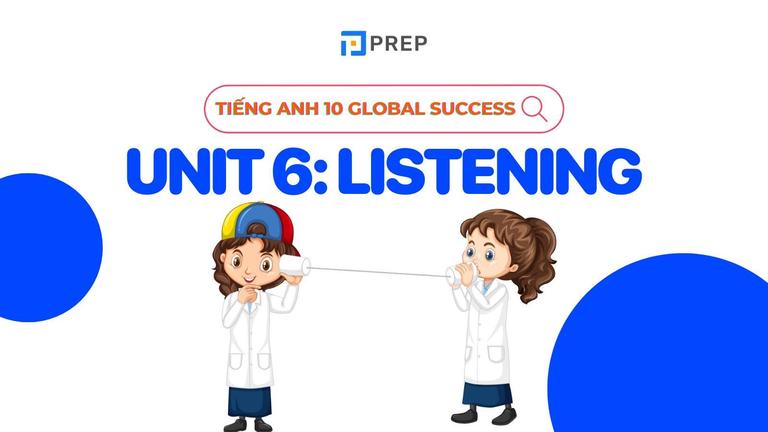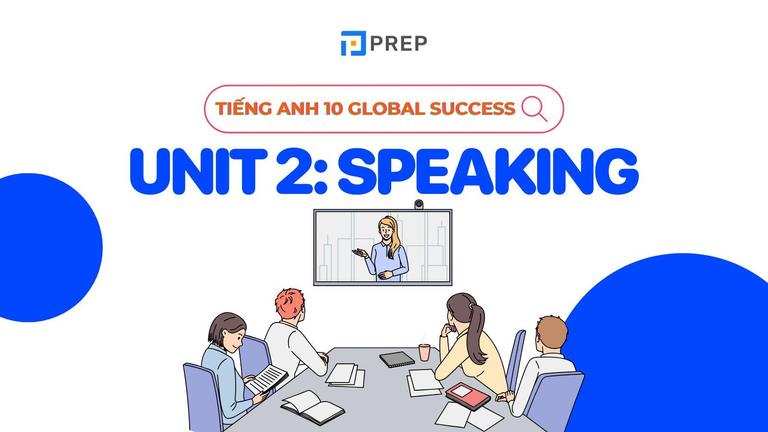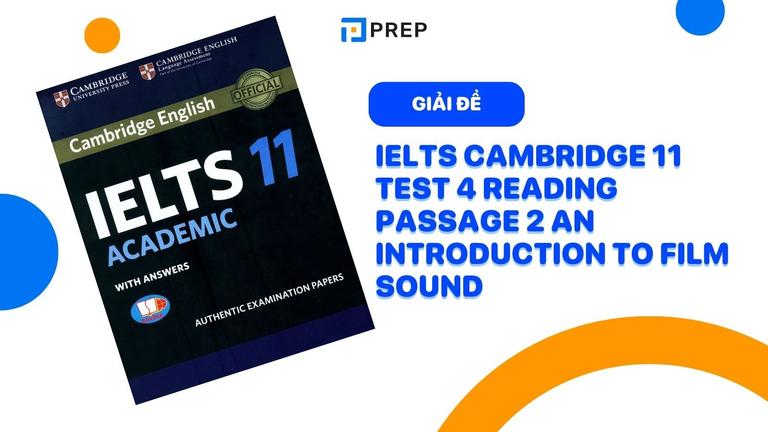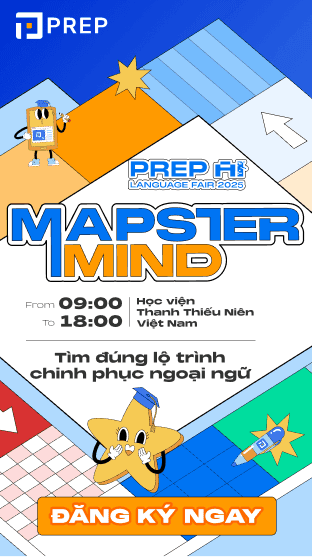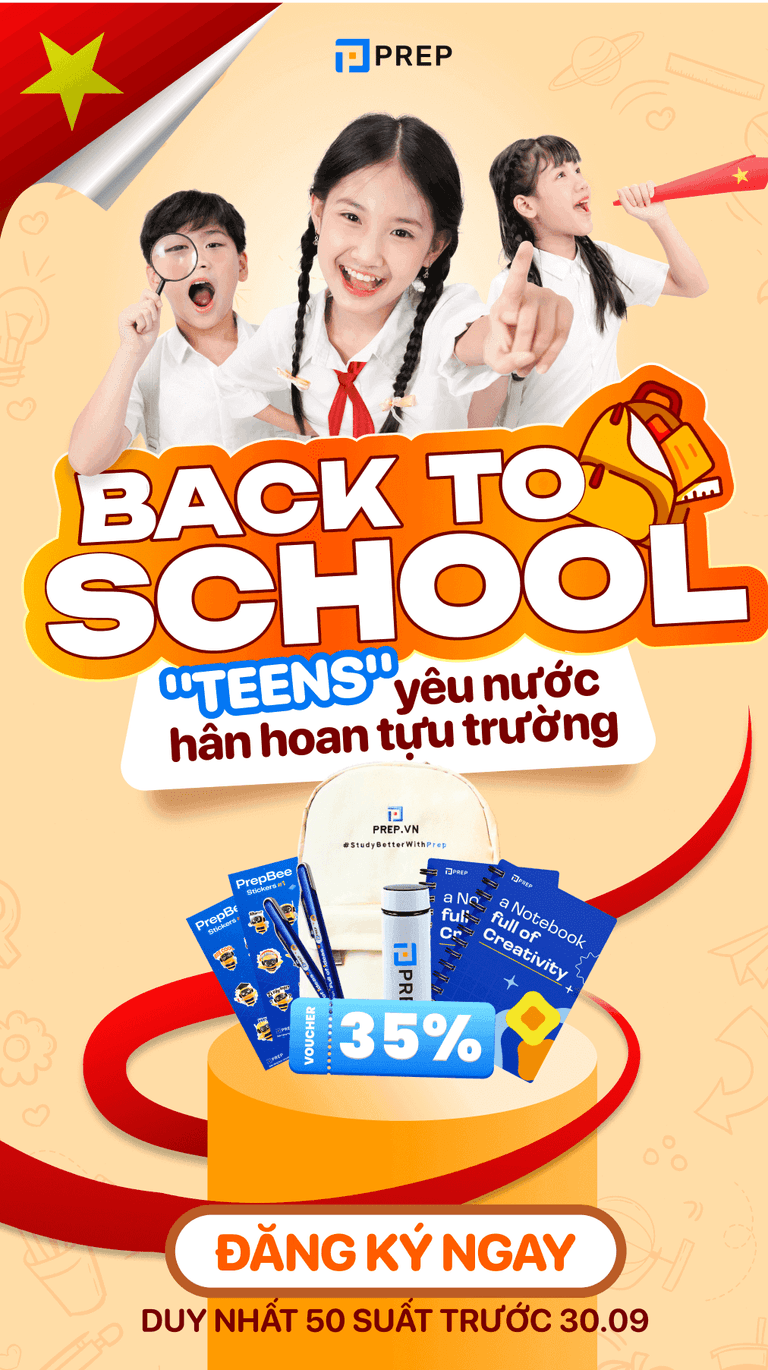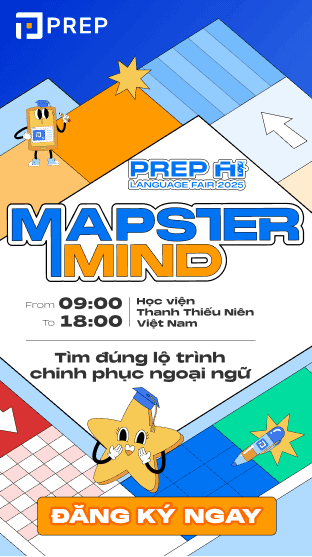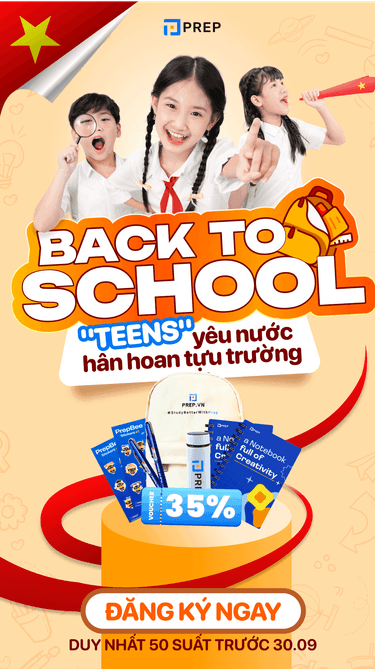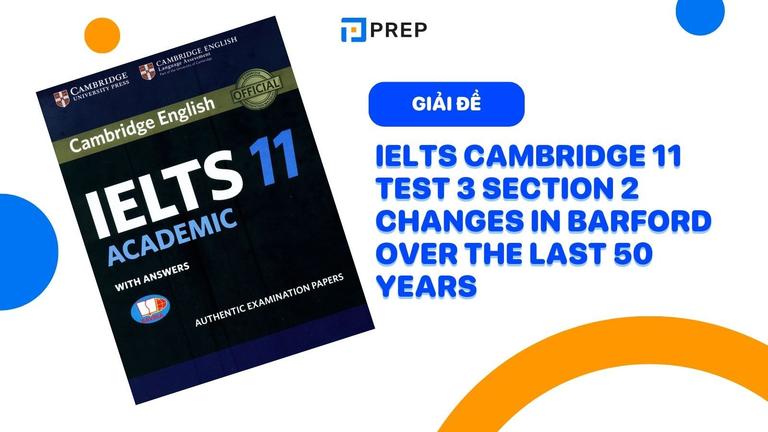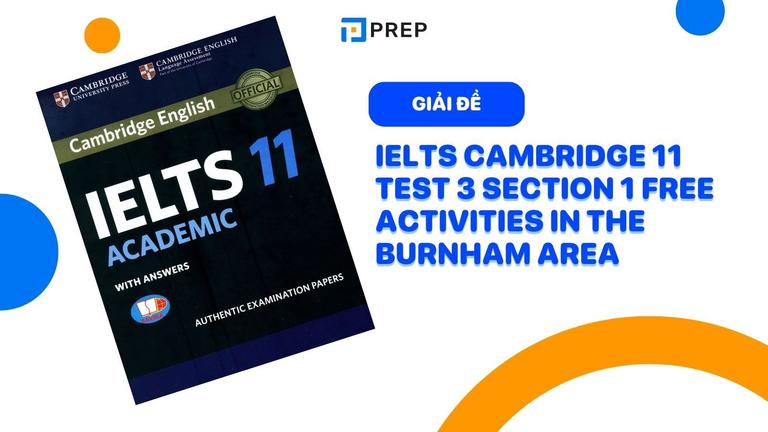IELTS Speaking Part 2, 3: Describe a skill that you learned in your childhood
Describe a skill that you learned in your childhood là câu hỏi IELTS Speaking Part 2 phổ biến, đã từng xuất hiện trong bài thi IELTS thực chiến. Nếu như gặp topic này thì bạn sẽ trả lời như thế nào? Nếu chưa có sẵn câu trả lời hợp lý thì hãy cùng PREP tham khảo bài mẫu band 7.0+ được các thầy cô giáo tại PREP có nhiều năm kinh nghiệm trong lĩnh vực giảng dạy IELTS biên soạn. Tham khảo ngay bạn nhé!
- I. Bài mẫu Describe a skill that you learned in your childhood
- II. Câu trả lời mẫu IELTS Speaking Part 3 chủ đề: Describe a skill that you learned in your childhood
- 1. Where do children learn skills in your country?
- 2. What are the differences between learning skills on your own and from others?
- 3. What important skills should a child learn?
- 4. What skills do you think teenagers should have?
- 5. Who should teach teenagers skills?
- 6. What are the differences between children's learning skills and adults' learning skills?

I. Bài mẫu Describe a skill that you learned in your childhood
Tham khảo bài mẫu Describe a skill that you learned in your childhood band 7.0+ được các thầy cô giáo tại PREP có nhiều năm kinh nghiệm trong lĩnh vực giảng dạy IELTS biên soạn. Tham khảo ngay bạn nhé!
1. Đề bài
Describe a skill that you learned in your childhood. You should say:
- What the skill is
- When and how you learned it
- Who you learned it from
And explain why you learned it

2. Sample Speaking: Describe a skill that you learned in your childhood
Tham khảo ngay bài mẫu Speaking Part 2 chủ đề Describe a skill that you learned in your childhood band 7.0+ ngay dưới đây bạn nhé!
To answer the question, I would say the skill I’m quite proud of is swimming. I vividly remember, I must have been around seven or eight years old when I started learning this skill. You see, my family and I used to go to this local community pool, especially during the hot summer months. It was there, amidst the splashing and laughter of other children, that my journey in learning how to swim began.
I was, in fact, taught by my father, who was an excellent swimmer himself. He was patient and methodical in his teaching approach. He started with the basics, like how to hold my breath underwater, and gradually progressed to more complex techniques like different swimming strokes. Our weekends were often spent in the pool, with him demonstrating a stroke and me trying to mimic it, with quite a few splutters and struggles initially.
The reason behind learning this skill, well, it was twofold. Firstly, my parents were very keen on ensuring that I learned how to swim from a safety perspective. They believed it was an essential life skill, especially since we lived near a coastal area. And secondly, I reckon, it was also about building my confidence and physical fitness. Swimming not only improved my stamina and strength but also instilled a sense of achievement in me. Each stroke I learned, each lap I completed, felt like a personal victory. It's a skill that has not only benefited my physical health but also provided me with countless joyful memories from my childhood.
Từ vựng hay cho Describe a skill that you learned in your childhood:
- Vividly (adv): Một cách sống động
- Amidst (prep): Ở giữa
- Splashing (n): tiếng nước bắn tung tóe ra ngoài
- Methodical (adj): Phương pháp
- Complex (adj): Phức tạp
- Mimic (v): Bắt chước
- Splutters (n): Tiếng nói lắp bắp
- Reckon (v): Nghĩ đến
- Confidence (n): Sự tự tin
- Victory (n): Chiến thắng
- Countless (adj): Vô số
Tham khảo bài mẫu:
- IELTS Speaking Part 2, 3 chủ đề: Describe an enjoyable experience in your childhood
- IELTS Speaking Part 2, 3 chủ đề: Describe a toy you liked in your childhood
- IELTS Speaking Part 1, 2, 3 chủ đề: Talk about your childhood
II. Câu trả lời mẫu IELTS Speaking Part 3 chủ đề: Describe a skill that you learned in your childhood
Dưới đây là danh sách câu hỏi và câu trả lời mẫu IELTS Speaking Part 3 chủ đề Describe a skill that you learned in your childhood. Tham khảo ngay bạn nhé!

1. Where do children learn skills in your country?
Well, I think Vietnamese young children can acquire skills from formal education institutions such as schools, learning centers, or right from their family teaching and the community that they live in. Schools, for example, as a structured environment can provide a comprehensive curriculum covering academic, social and practical skills. Meanwhile, they can study communication, problem-solving, laundry, cooking, cleaning and chores at home, which all make up a diverse skill set to ensure a well-rounded development.
- Acquire (v): Có được
- Structured (adj): Có cấu trúc
- Comprehensive (adj): Toàn diện
- Problem-solving (n): Giải quyết vấn đề
- Well-rounded (adj): Đầy đủ
2. What are the differences between learning skills on your own and from others?
I think they entail distinct approaches. Self-learning fosters autonomy and initiative, allowing individuals to explore personal interests. On the contrary, learning from others, whether through mentorship or formal education, provides guidance, accelerates learning, and offers a structured pathway.
- Distinct (adj): Khác biệt
- Foster (v): Nuôi dưỡng
- Initiative (n): Kế hoạch
- Mentorship (n): Sự chỉ dẫn, dẫn dắt
- Accelerate (v): Tăng tốc
3. What important skills should a child learn?
Essential skills for children encompass a spectrum of abilities. Apart from doing well at school, being able to cultivate emotional intelligence, effective communication, and problem-solving skills are of great significance, too. Practical skills like time management and teamwork contribute to holistic development, and parental involvement in reinforcing these skills at home is vital. I can also think of some others like survival skills, swimming or first aid.
- Encompass (v): Bao gồm
- Cultivate (v): Trồng trọt
- Holistic (adj): Toàn diện
- Reinforce (v): Củng cố
- Survival (adj): Sự sống sót
4. What skills do you think teenagers should have?
Uhm, there are so many, let me think. Teenagers should hone a range of skills preparing them for adulthood. Critical thinking, financial literacy, and digital competence are indispensable in navigating the complexities of the modern world. A blend of formal education, extracurricular activities, and parental guidance ensures a holistic skill set that could propel them to succeed both in studying and working.
- Adulthood (n): Tuổi trưởng thành
- Indispensable (adj): Không thể thiếu
- Propel (v): Đẩy
5. Who should teach teenagers skills?
Teaching teenagers skills involves a collaborative effort. Schools should emphasize practical life skills and provide a community to socialize and learn from their peers, while parents contribute by instilling values and offering real-world insights. Additionally, mentorship programs and community involvement enhance the skill-building process. For example, they can join different volunteer programs to learn more about the real world, meet people who live in impoverished conditions, or help people who are in need, which can teach them to be grateful and enhance their emotional intelligence.
- Emphasize (v): Nhấn mạnh
- Socialize (v): Xã hội hóa
- Enhance (v): Tăng cường
- Impoverished (adj): Nghèo nàn
6. What are the differences between children's learning skills and adults' learning skills?
From what I read, children have a broader learning window, leading them to learn very fast and pick new things up very quickly. For instance, when it comes to mastering a new language, it seems easier for the young to learn than adults, perhaps because of a flexible mindset and heightened receptivity. In contrast, adults draw from life experiences, applying critical thinking and adapting skills to diverse contexts, they also have greater motivations as they can set out their goals more clearly.
- Master (v): chuyên nghiệp
- Flexible (adj): Linh hoạt
- Receptivity (n): Khả năng tiếp thu
- Context (n): Bối cảnh
Sau khi đã tích lũy được từ vựng hay, dàn bài chuẩn và câu trả lời mẫuu thì bạn cần thực hành nói để nâng cao tính phản xạ nhanh cũng như rèn luyện sự trôi chảy trong lời nói. Thay vì mất nhiều thời gian đi tìm bạn đồng hành - người vừa luyện nói với bạn, sửa lỗi cho bạn thì hãy ghé thăm phòng Speaking Ảo VSR.
Đến với phòng Speaking Ảo (VSR) của PREP, bạn sẽ được trải môi trường luyện nói như đang ở trong kỳ thi thật; Ứng dụng AI vào sửa lỗi phát âm, dùng sai từ, cấu trúc từ đó cung cấp từ mới, collocations, cụm từ hay thay thế mà vẫn giữ nguyên nội dung bài nói của bạn.
Còn nhiều trải nghiệm “cấp cao” ở PREP đang chờ bạn khám phá, ấn vào link dưới dây để đến với VSR nha!
Trên đây PREP đã cung cấp đầy đủ đề bài, các lập dàn ý, từ vựng ăn điểm và câu trả lời mẫu cho IELTS Speaking Part 2 “Describe a skill that you learned in your childhood”. PREP chúc bạn ôn thi IELTS hiệu quả và đạt được band điểm mong muốn nhé!

Chào bạn! Mình là Hiền Hoàng, hiện đang đảm nhận vai trò quản trị nội dung sản phẩm tại Blog của website prepedu.com.
Với hơn 5 năm tự học các ngoại ngữ như tiếng Anh, tiếng Trung và ôn luyện một số kỳ thi IELTS, TOEIC, HSK, mình đã tự đúc rút được nhiều kinh nghiệm để hỗ trợ hàng nghìn người đang gặp khó khăn trong việc học ngoại ngữ. Hy vọng rằng những chia sẻ phía trên sẽ giúp ích cho bạn trong quá trình tự ôn luyện thi hiệu quả tại nhà!
Bình luận
Nội dung premium
Xem tất cảLộ trình cá nhân hoá
Có thể bạn quan tâm
Kết nối với Prep

MSDN: 0109817671.
Địa chỉ liên hệ: Tòa nhà Vinaconex, 34 Láng Hạ, phường Láng, TP Hà Nội.
Trung tâm CSKH tại HN: Lô 21 C2 Khu đô thị Nam Trung Yên, phường Yên Hòa, TP Hà Nội.
Trung tâm CSKH tại HCM: 288 Pasteur, Phường Xuân Hòa, TP Hồ Chí Minh
Trụ sở Công ty: Số nhà 20, ngách 234/35 đường Hoàng Quốc Việt, phường Nghĩa Đô, TP Hà Nội.
Phòng luyện ảo - Trải nghiệm thực tế - Công nghệ hàng đầu.
Hotline: 0931 42 8899.
Trụ sở Công ty: Số nhà 20, ngách 234/35 đường Hoàng Quốc Việt, phường Nghĩa Đô, TP Hà Nội.
Giấy chứng nhận hoạt động đào tạo, bồi dưỡng số 1309/QĐ-SGDĐT ngày 31 tháng 07 năm 2023 do Sở Giáo dục và Đào tạo Hà Nội cấp.
